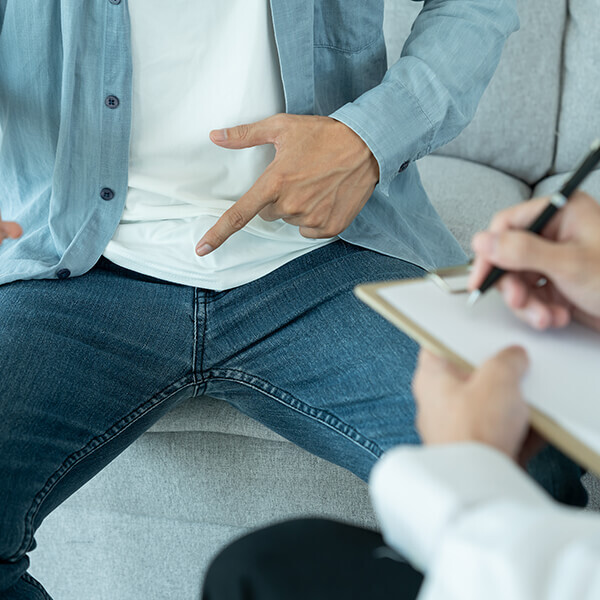
Delayed ejaculation happens when it takes much longer than usual to reach climax during sex. It can feel frustrating or cause confusion between partners. You’re not alone—and there are ways to get help.
Visit our DOXXES store on North Freeway / Little York to explore products that may support your journey toward more satisfying intimacy.
What Is Delayed Ejaculation?
Delayed ejaculation (DE) means having trouble reaching climax even with enough stimulation. It’s more than just a slow build—it’s often a sign that something else is going on.
Types include:
- Superficial: You feel sensation, but can’t finish
- Deep: The body doesn’t respond fully to arousal
- Provoked: Climax only happens in certain situations
Why Does It Happen?
Emotional reasons:
- Stress from work, money, or family
- Worrying about performance or partner satisfaction
- Past trauma or fear of intimacy
- Relationship tension or lack of trust
Physical reasons:
- Nerve damage or infections
- Low testosterone or other hormone issues
- Prostate conditions or pelvic floor problems
- Side effects from certain medications
Most people experience a mix of these causes.
Common Examples and Triggers
Real-life examples:
- You climax easily when alone but struggle with a partner
- Climax takes 30–60 minutes and feels tiring
- Emotional distance from a partner slows down the experience
- Aging or past surgeries change sensation
How to spot your triggers:
- Keep notes on timing, emotions, and comfort
- Try different positions or settings and compare
- Notice how stress, medication, or diet affect your response
Who Is Affected?
Anyone with a prostate can be affected. Delayed ejaculation is more common as people age but can happen at any time.
Men might feel:
- Pressure to “perform”
- Guilt or embarrassment
Partners might feel:
- Left out, confused, or unsure of their role
- Concerned about their partner’s health or feelings
It’s important to talk about it together.
How a Sex Therapist Can Help
- Talk through your full sexual history and concerns
- Help you understand emotional triggers
- Check for signs of depression or anxiety
- Guide couples in better communication
Ways to Treat and Cope
- Therapy: Talking through stress, past trauma, or fears can help.
- Medication review: Some drugs, like antidepressants, may slow ejaculation. Talk to your doctor about other options.
- Healthy habits: Eat well, stay hydrated, and get regular exercise to support better body response.
- Post-surgery care: Use warm baths, pelvic stretches, and relaxation techniques if you’re healing after prostate surgery.

How DOXXES.LOVE Can Help
We offer:
- Water-based lubricants for more comfort
- Pelvic floor exercisers for muscle strength
- Gentle vibrators to help with sensation
- Prostate massagers to improve blood flow
All products come with clear instructions. Using them alongside therapy often speeds up results.
How to Talk About It
- Use “I” statements: “I’ve been feeling worried.”
- Pick a calm, private moment to talk
- Share what you’re learning together
- Be open to support from your partner
- Don’t wait—talking early can make things better sooner
Visit Our Store
Come visit our DOXXES location on North Freeway / Little York. Our staff offers a private, friendly space to explore solutions and ask questions comfortably.
Conclusion
Delayed ejaculation is common—and treatable. With the right tools, open conversations, and expert care, you can enjoy satisfying, stress-free intimacy again. Stop by DOXXES to get started today.
FAQs
- What is delayed ejaculation (DE)?
DE is difficulty or inability to climax during sex, even with enough stimulation. - Can I get help for DE at North Freeway / Little York?
Yes. Our providers offer full evaluations and treatment plans. - What causes it?
Common causes include stress, medications, hormone problems, or nerve damage. - Is it the same as anorgasmia?
No. DE means climax happens slowly; anorgasmia means it doesn’t happen at all. - Can emotions affect DE?
Yes. Anxiety, trauma, or relationship issues can all play a role. - Do some medications cause DE?
Yes—especially antidepressants, antipsychotics, and blood pressure meds. - Can low testosterone be a factor?
Yes. Hormone imbalances can slow response and reduce sensitivity. - Will therapy help?
Yes. It’s one of the most effective tools—especially for emotional causes. - Should I talk to my partner about it?
Absolutely. Open conversations reduce pressure and build support. - Does North Freeway / Little York monitor progress?
Yes. We track results and adjust plans based on what works best for you.
